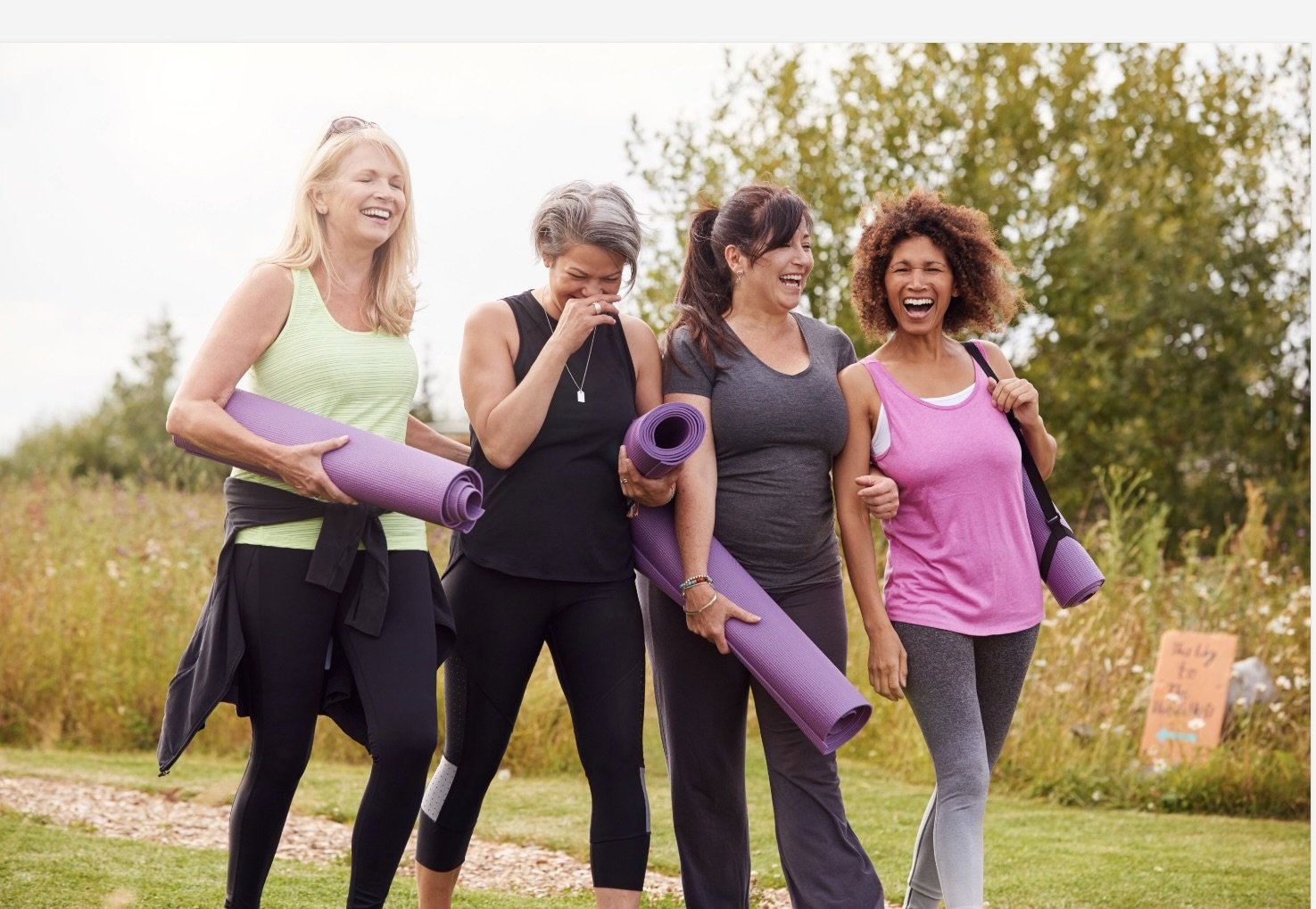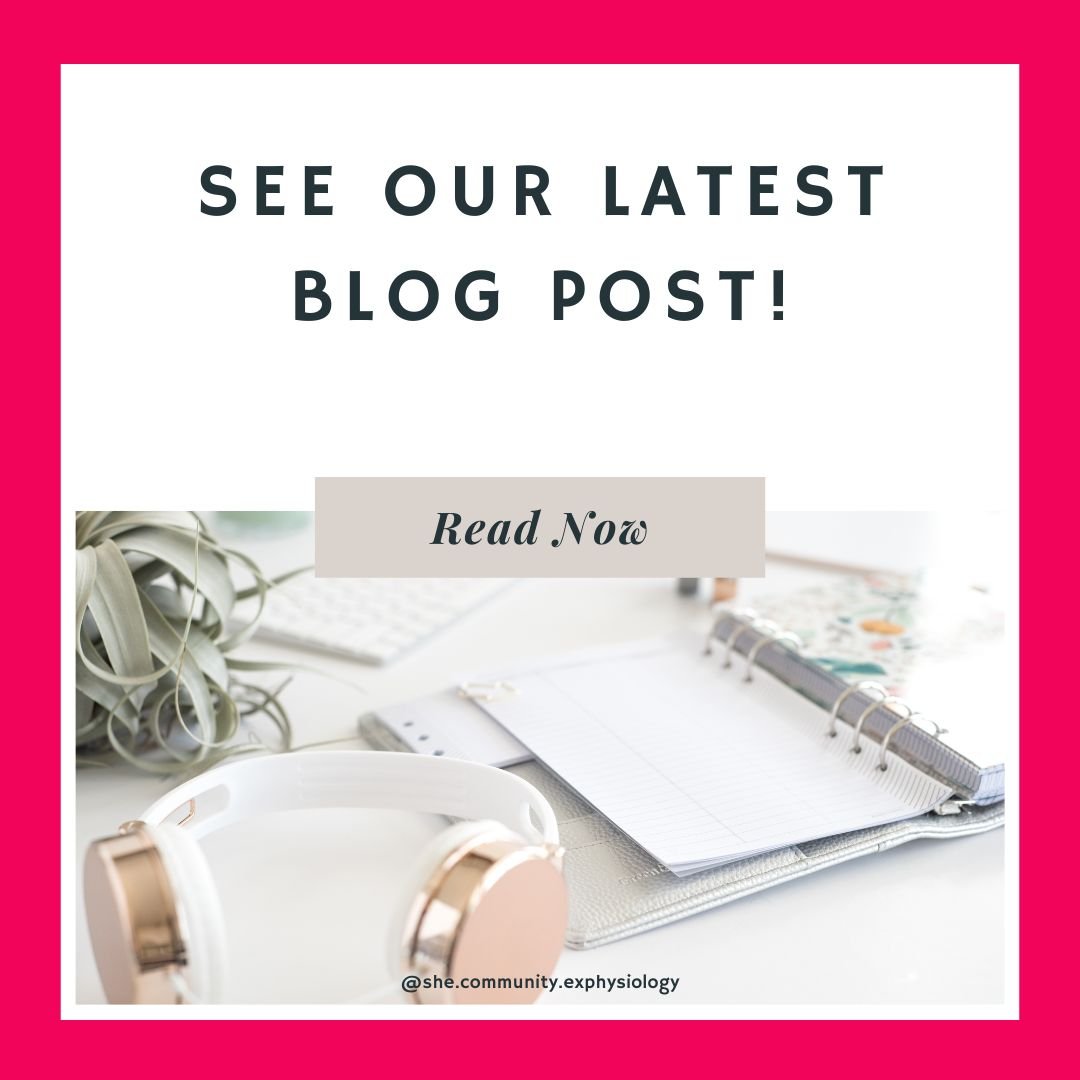
EXERCISE PHYSIOLOGY - menopause specialists
MOVE THROUGH MENOPAUSE and mid life
We also work with a range of other women’s health conditions - about me and our full range of services!
SHE COMMUNITY AND HEALTHCARE
SHE COMMUNITY
A free (and always will be) online resource go to for evidence based information and education. Via Facebook and Instagram. Knowledge is Power.
See our Facebook and Instagram pages for the amazing online community we have created for you.
BUSINESS DIRECTORY
Professionals from all over Australia in your local area. Search the directory for any services you might need.
COMING SOON
ALIED HEALTH EDUCATION AND EXERCISE PHYSIOLOGY
We have more paid options, customised for what you need with flexible payment plans. Take a look. Education and programs for both the general public and exercise professionals.
Our Blog…..
See our ongoing Blog here!
From time to time we will feature a new Blog on something Menopause, Hormones or Mid Life related. These posts will feature a variety of experts in their fields and their details will be able to be found in our Business Directory. We will have experts right around the country at your fingertips. This directory will slowly build as She Community grows, but if you can’t find what you are looking for dont hesitate to contact us!!
Business Directory coming soon!
Exercise Physiology
HERE AT SHE COMMUNITY AND HEALTHCARE, WE USE EXERCISE PHYSIOLOGY IN THE SPECIALITY OF WOMEN’S HEALTH, SPECIFICALLY IN MID LIFE AND MENOPAUSE.
What is Exercise Physiology and how can it help you through Menopause?
An Exercise Physiologist (EP) or officially - Accredited Exercise Physiologist (AEP) is an expert Allied Health Professional in the exercise is medicine space.
Accredited Exercise Physiologists are university-qualified allied health professionals who prescribe, deliver, and adapt movement, physical activity, and exercise-based interventions to facilitate and optimise health status, function, recovery, and independence. This helps people participate in activities at home, school, work, and in the community.
AEPs provide services to people across the full health spectrum, healthy through to those at risk of developing a health condition, and people with health conditions, a disability, and aged related illnesses and conditions, including chronic, complex conditions.
AEPs apply evidence-based judgment and clinical reasoning to individuals, groups, and the broader community to Improve and maintain health status and function and support re-ablement, prevent decline of health status, prevent, treat, and manage health conditions (including diseases, disorders, traumas and injuries), including complex, chronic conditions, screen, assess, and measure capacity and function for activities of daily living and work-related activities, and to inform interventions.
They also prescribe, deliver, adapt, and evaluate movement, physical activity, and exercise-based interventions to enhance and maintain function and quality of life, facilitate recovery and promote re-ablement, maximise independence, educate and advise about health and well-being and how physical activity and exercise can improve health outcomes, empower people to improve health outcomes, and self-manage health conditions, coach and motivate to increase engagement and self-efficacy in treatment and physical activity, including addressing client preferences, needs, barriers, and goals.
AEPs apply a person-centred approach to people of diverse backgrounds and populations, and work collaboratively with clients and relevant others involved in supporting their health and well-being.
AEPs practise in a culturally safe and inclusive manner according to the principles of person centred care and apply appropriate in-person and digital practices such as telehealth.
**Taken from the Exercise and Sports Science Australia (ESSA) AEP Scope of Practise
You can find out more about what an exercise physiologist does on the Exercise and Sports Science Australia website here.
In terms of how I, or any specialist women’s health Exercise Physiologist can help you during Menopause, Menopause is a time of metabolic and physiological change due to the change in your body’s processes as estrogen and progesterone become erratic and eventually decline. All female bodily processes rely on our sex hormones for normal and optimal functioning including how exercise elicits responses, how we perform, how we adapt and how we recover. During Menopause these processes become disrupted and you might need to change your exercise prescription to maximise recovery, performance and health gains and limit exhaustion and fatigue. It is also really important in Menopause to start some form of exercise if you haven’t been exercising before now. Your body cannot get away with the things it used to get away with when you had the support of your anabolic hormones. You need to actively work at maintaining muscle mass and strength, bone strength, cardiovascular and metabolic function as well as brain and mental health. Exercise and movement, your way, with our help, will help optimise your Menopause experience, function and quality of life well into your older years.
This is what Exercise Physiologists do as we are best place to understand all bodily processes, and any changes in them, to be able to effectively prescribe exercise for all people regardless of stage of life, medical conditions, injuries or disabilities.
An Exercise Physiologist uses exercise as medicine just like a GP or specialist uses drugs (and other medical interventions) as medicine. We know when the usual evidence based prescription applies and is working, we know when it needs tweaking and we also know when a different approach is needed, despite what evidence might say - as we work with humans who don’t always do what the research says they should. We base our treatment on your individual situation, challenges, barriers and goals and have a whole person centred approach to our treatment. We promote education and independence during treatment.





